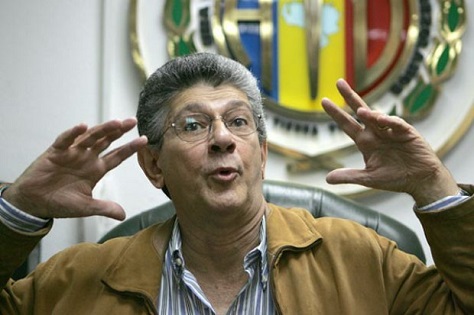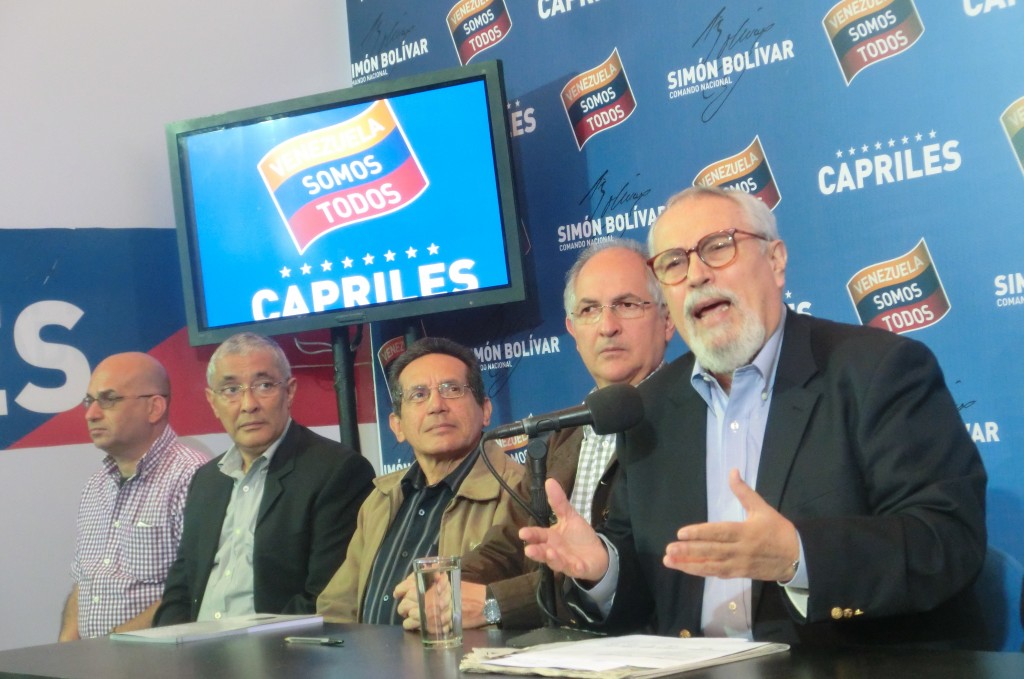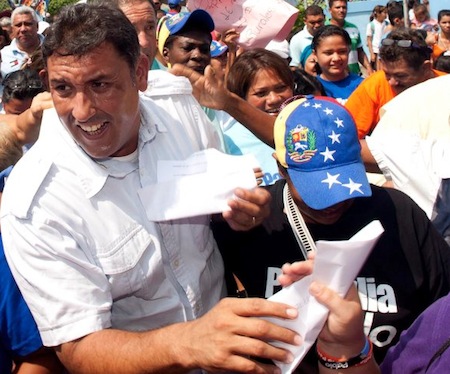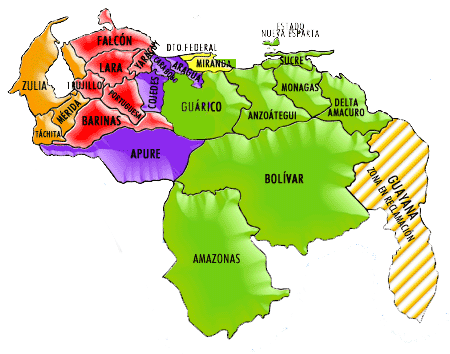
Without a doubt, the victory of the anti-chavista opposition in the December 6 elections was one of the most improbable and most impressive wins in world politics in 2015.![]()
With a two-thirds majority that the Mesa de la Unidad Democrática (MUD, Democratic Unity Roundtable) is still trying to defend from attacks from the ruling Partido Socialista Unido de Venezuela (PSUV, United Socialist Party of Venezuela), the opposition today took control of the Asamblea Nacional (National Assembly), the legislative branch of Venezuela’s government. That will continue to be true, no matter if the PSUV tries to invalidate a handful of MUD deputies or if president Nicolas Maduro tries to create an alternative chavista-dominated popular assembly.
For the first time since 1999, the chavistas haven’t controlled the National Assembly. Naturally, it was a momentous occasion. For now, the Venezuelan people seem firmly behind the opposition, in the hopes that they can push Maduro toward reforms to provide economic relief after years of socialist policies and, perhaps more damningly, widespread corruption, handouts to socialist allies like Cuba and Nicaragua and mismanagement of PdVSA, the state petroleum company, which has only accelerated losses stemming from the global decline in oil prices.
* * * * *
RELATED: Venezuela’s opposition supermajority must prioritize recalling Maduro
RELATED: No matter who wins, the December 6 elections will not be chavismo‘s last stand
RELATED: A primer on the MUD, Venezuela’s broad opposition coalition
* * * * *
But that’s also why it’s so disappointing that the MUD coalition chose as the president of the National Assembly the 72-year-old Henry Ramos Allup, a longtime fixture on the Venezuelan opposition and a throwback to the ancien régime that proved so corrupt and incapable that it opened the path to Hugo Chávez’s perfectly democratic election to the Venezuelan presidency in 1998.
Let’s start with the good news. Ramos Allup, it’s true, was chosen through a democratic process, an internal vote among the 112 MUD deputies. He easily defeated Julio Borges, another opposition figure close to former presidential candidate Henrique Capriles, by a vote of 63 to 49 over the weekend. He’s one of the few figures within the opposition to have some experience of Venezuelan governance before chavismo and, truth be told, he’s a tough and wily character who will not easily be rolled. (Though, almost immediately after the new majority took power in the National Assembly, the chavista deputies, including the former Assembly president Diosdado Cabello, promptly walked out).
Then again, for an opposition that hopes to present itself as a fresh movement of good government and reform capable to bringing change to Venezuela, it’s a curious choice. Continue reading Venezuela’s disappointing new legislative leader is only slightly better than chavismo



